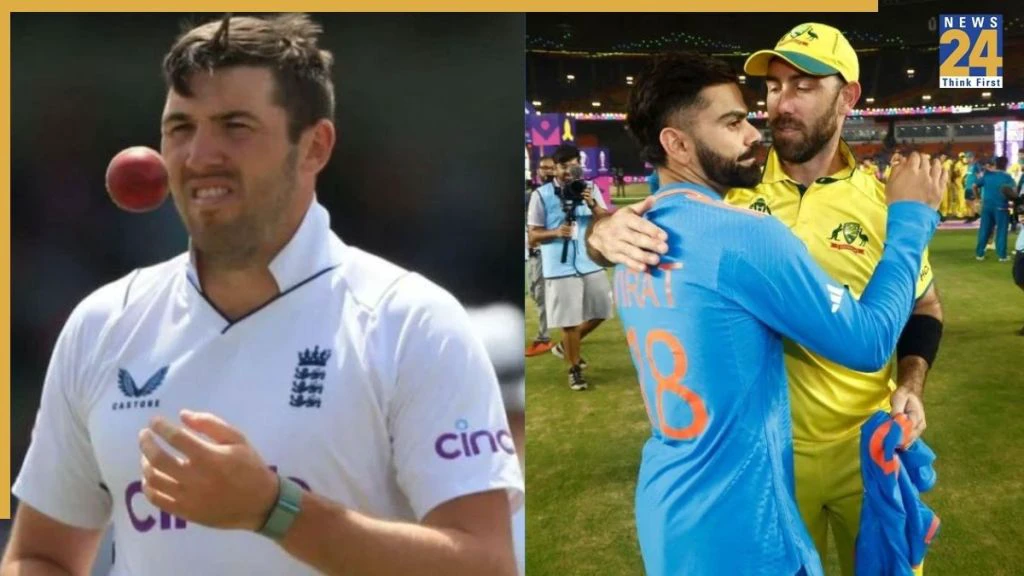In a development that has set discussion alight around the cricketing universe, England all-rounder Jamie Overton has declared an indefinite break from Test cricket on the grounds of the physical and mental strain of performing in all three forms at the highest level.
Though Overton’s absence is undoubtedly a blow for England – particularly in the lead-up to the much-awaited Ashes series – it also reopens a critical debate in contemporary cricket: the increased pressure and mental burnout of players in the current busy cricket schedule.
Mental Health – A Growing Challenge in Modern-Day Cricket
In the last ten years, cricket’s volume has increased exponentially. In addition to international duties, today’s players have also taken on responsibilities in franchise competitions globally – little or no time for recuperation between events. Pandemic bio-bubbles, non-stop travel, and pressure to perform to a high standard have only compounded the pressure.
Jamie Overton’s choice is by no means a solitary instance. Indeed, quite a few top cricketers have, in the last few years, taken temporary breaks from the sport to deal with their mental and emotional health. Here’s a glance at a few who had the courage to take that step:
Virat Kohli
Considered by many to be one of the greatest batters of the current generation, Virat Kohli shocked fans when he took a 42-day break prior to the Asia Cup 2022.
Kohli afterwards disclosed that he was mentally exhausted, stating that he had been “faking intensity” out on the field. “I didn’t touch my bat for a month,” Kohli confessed in an open interview. That much-needed break allowed him to hit the reset button and he returned with refreshed focus and hunger.
Glenn Maxwell
Australian maverick Glenn Maxwell has never been afraid of talking about mental health. He took his inaugural break for mental health in October 2019, taking time off during the T20I series against Sri Lanka.
Maxwell used depression as the excuse, and his willingness to speak out broke the taboo of mental illness in sports. He also took a second break during IPL 2024, after a slump with RCB. His honesty has inspired many younger players who are going through the same thing.
Ben Stokes
In July 2021, Ben Stokes – England’s fiery Test captain took an indefinite break from cricket, divulging later that he was under siege from panic attacks.
The move, while drastic, had to be made. Stokes put his mental health first and came back to captain England’s Test team with gusto, playing a key role in their attacking new “Bazball” brand. His return is an inspirational tale for players and fans.
Ishan Kishan
Young Indian wicket-keeper batter Ishan Kishan too walked away from the game during India’s tour of South Africa in 2023-24.
Suffering from mental exhaustion, he left home in the middle of the series. Though he has not yet been back in the national fold, his move highlights the fact that even young players experience the pressure of expectations and keen competition
Jonathan Trott
Flash back to the 2013 Ashes series in Australia – a tour which was overwhelmed by Mitchell Johnson’s aggressive and fiery pace. It was during the tour that England batsman Jonathan Trott had a 16-month break after fighting to manage mentally.
Trott’s exit in the middle of the series shocked most back then, but his bravery in admitting the problem publicly has seen him gain enduring respect. Although he came back in 2015, he was not able to find his old self and retired shortly thereafter.
Cricket Is a Game of the Mind, Too
Jamie Overton’s choice is a reminder that despite the fact that the physical performance of sport is quantified in terms of runs and wickets, the real fight often takes place within. Cricket has always been a psychological tough game but in the present age, where players are infrequently permitted to switch off, the pressures are heightened.
As observers, commentators, and interested parties, it’s critical that we understand that mental health is equal to physical conditioning. Resting shouldn’t be seen as weakness, but as progress towards longevity and sustainability in a sport that keeps finding new ways to advance at an incessant rate.
Here’s hoping Overton gets the space and rest he requires and maybe, like so many before him, comes back even better.
